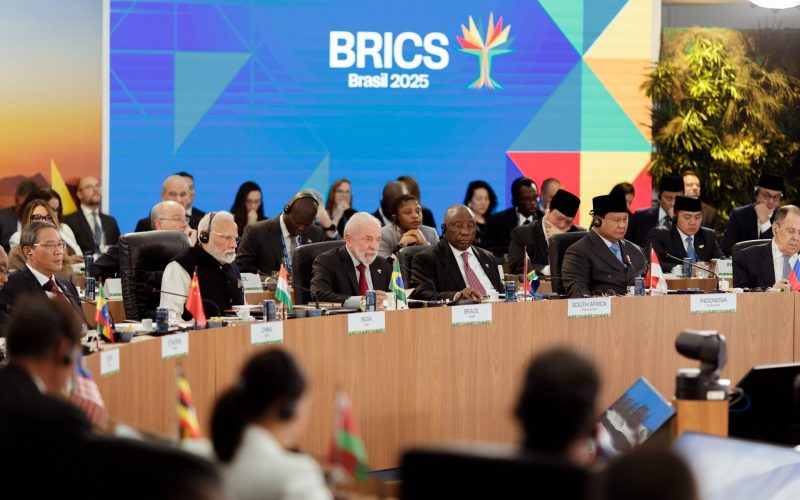What South Africa is grappling with in its balancing act between national security interests and international investment competitiveness is nothing new. Countries such as the US, Canada, Japan, Australia and China have successfully walked that tightrope before. South Africa, being the hitherto multilateral player that apparently does not shy away from learning from the best, could take its cue from some of these countries.
Click here for a package of SAIIA materials related to foreign direct investment.
The minister sought to emphasise the need for South Africa to protect its national security because it was a developmental state. The connection between national security and being a developmental state is difficult to comprehend. An assumption could be made that Minister Mthethwa wanted to argue the point of ensuring national security without losing sight of the need to sustain economic growth and development through inter alia attracting much-needed foreign investment and international trade. He went as far as stressing that in order to achieve this balance, South Africa is prepared to withdraw from the General Agreement on Trade in Services and renegotiate with all World Trade Organization (WTO) members that will be affected by the measure. This withdrawal is bound to be a lengthy process as Article XXI proscribes South Africa from implementing the Security Bill before notifying the WTO, engaging in consultations with affected members and even undergoing arbitration proceedings in the event of an impasse. The end result would be providing compensatory measures to those members that might be affected adversely by the Security Bill’s restrictive trade and investment provisions.
That South Africa is prepared to undergo this tortuous process to ensure national security underscores the uneasy (although inescapable) relationship between national security on the one hand and trade and investment imperatives on the other. This emphasised the fact that the bias in policy approach is largely determined by the perspective from which one views this conundrum. Security experts will invariably emphasise the need to entrench security at all costs, whereas those on the trade and investment side will be more predisposed towards economic openness, sometimes at the expense of security dictates. Striking a fine balance between the two approaches and policy needs is what confronts South Africa right now with regard to the Security Bill debates.
The main issue with the Security Bill is that it mandates that all security firms should be majority owned by South Africans. This means that foreign-owned security firms such as Chubb, G4S, ADT and Securitas should sell their majority shareholding to local firms. In addition to this 51% divestiture requirement, the Security Bill also stipulates that those firms involved in the manufacturing, transportation and distribution of security equipment such as cameras should also be classified as security firms and, as a result, meet equity sale requirements. These firms would include Bosch, Siemens and Fedex, among others. Key cutters of any size and located in any part of the country will also have to be majority owned by South African citizens. This automatically criminalises a key-cutting business owned by a foreign citizen – even a foreign citizen in downtown Soweto or Alexandra.
The Security Bill further vests in the police minister the power to vary the percentages to be divested, on a case-by-case basis. This means that the minister might decide that Chubb, for example, will only have to divest 20% of share equity to a local entity, while requiring that G4S hand over 80% of its shareholding. In addition to this, the Security Bill empowers the minister to exempt some firms from the expropriation provision.
The expropriation provision requiring 51% divestiture and the wide discretionary powers vested in the minister have huge adverse implications for the country’s commitments in its remaining bilateral investment treaties (BITs), and to the WTO, the Southern African Development Community (SADC), the African Growth and Opportunity Act (AGOA) and other trade and investment agreements. The inconsistencies vary from violating expropriation principles to running counter to internationally agreed principles of non-discrimination and market access.
There is no doubt that the buyers envisaged in the Security Bill would preferably be black economic empowerment companies, considering that the Bill itself makes a direct reference to the Promotion and Protection of Investments Bill, also known as the Investment Bill. The Investment Bill’s main thrust is to link foreign direct investment to black economic empowerment and industrial policy, which includes beneficiation. The police minister would definitely have been alluding to black economic empowerment and the beneficiation policies as being hallmarks of a developmental state that need to be safeguarded through national security legislation such as the Security Bill.
The Security Bill includes a miniature screening mechanism in Section 20, through the establishment of an inter-departmental Exemption Committee. This committee is tasked with reviewing current and future investments to ensure that they comply with the 51% divestiture, and determining those that should be exempted. The Exemption Committee makes recommendations to the minister, who makes a final determination. The Security Bill in itself gives the minister wide-ranging discretionary powers, which could be exploited by vested interests in both the private and public sectors. The screening mechanism lacks transparency and accountability, as the Exemption Committee is not bound by law or regulation to make its recommendations public. Moreover, the minister is not bound by the decisions of the Exemptions Committee, nor does the minister have to publish reasons for his decisions. Ideally, South Africa should seriously consider how other countries effectively screen their investments for national security while maintaining their competitiveness.
To understand the minister’s talking points from the conference, one needs to assess how global developments in other competitive economies have shaped post-Second World War and post-September 11 thinking, as well as the general rise of China on the world stage. All these eras and events have had geopolitical implications for the regulation of foreign investments, especially with regard to entry conditions. Some of the issues that arose from these events have been the restriction of foreign investors in sectors considered strategic such as defence, agricultural land, information technology, finance and so on. South Africa is therefore not alone in wanting to regulate foreign investment on security grounds; however, its strategy differs from international best practice in that it adopts a piecemeal approach that is vulnerable to undue influence from potential vested interest in both the public and private sectors. If South Africa is indeed of the view that its trade and investment imperatives need to be counterweighed by security imperatives, it needs to adopt a general approach to the regulation of investment in the interest of national security.
This will require South Africa in the first instance to define what national security means. South Africa will have to negotiate policy space anchored in allowing the country to regulate international trade and investment on national security grounds. Regulatory space will have to be carved out of its international commitments at the WTO, through BITs and regional agreements. It will be difficult and costly to renegotiate commitments made at the WTO but considering that there is a general global movement towards new generation international investment agreements even by leading economies such as the US, Japan, China, Canada and the EU, South Africa will find fertile ground to have its security exceptions accommodated.
Besides the international trade and investment commitments, South Africa will then have to promulgate a general statute or insert a provision in the current Investment Bill aimed at screening foreign investments based on a well-defined national security standard. That particular regulatory regime should seek to establish an independent body that regulates the screening of foreign investments on national security requirements. The regulation should be based on principles and practices anchored in conditions such as consistency, independence, transparency, predictability, effectiveness and fairness. The screening could be extended to investments starting from a certain capital threshold, for instance in the nuclear industry, private security, agriculture and information technology sectors and in other sectors deemed to be strategic from an orthodox national security perspective. This is because the control of some of these sectors by state-owned enterprises could give them access to strategic information or control of key levers of the economy. Australia, for instance, had to block the takeover of the Australian Stock Exchange by the Singaporean Stock Exchange through a bid by the latter country’s sovereign wealth fund-linked investor. Japan has a total prohibition on foreign ownership in its energy sector based on national security interests.
The US is a good example of this: the country’s screening mechanism is one of the most utilised globally, yet has not deterred foreign investments. This is because it is transparent, as Congress has to be involved in decision-making even though the president makes the final decision – with reasons being made available to the public. Australia has a screening mechanism that resembles the one being considered in South Africa’s Security Bill. However, since it involves rigorous stakeholder and public consultation, it is less prone to abuse. The Canadians have a screening mechanism based on national security that is also transparent and based on clear thresholds and strict turnaround times.
On the other hand, South Africa might not want to emulate the Chinese way of screening. The Chinese have an opaque and onerous screening mechanism also based on national security. The main decision maker within the Chinese screening mechanism is the Ministry of Commerce, with no clear final arbiter. China’s screening mechanism is further complicated by the fact that it has been devolved to local authorities. All this notwithstanding, China manages to get away with such an unpredictable system as it is a huge magnet for foreign investors because of other factors, such as an enormous consumer market of growing affluence.
As the Mandela Institute conference concluded, it became clear that if South Africa does not wish to sacrifice economic development at the altar of national security, it has to follow international best practice. This is because the country is not immune to other geopolitical and economic considerations that have led to leading and emerging economies regulating foreign investment in the interest of national security. As South Africa continues to attract investment from the Chinese and Russians in such strategic sectors as nuclear energy, agriculture and high technology, it will have to apply screening to preserve national security. This is because most of the large-scale investments in these sectors are being concluded by sovereign wealth funds and state-owned enterprises. The whole push towards restricting agricultural land ownership to locals could be more palatable from a foreign investment regulatory perspective if located within a screening framework. This is provided the screening agency meets best international practices and standards.
In order to ensure predictability, South Africa should avoid creating a patchwork of sectoral screening agencies such as the one established in the Security Bill. It could be that South Africa had missed an opportunity to create a transparent and predictable screening mechanism in the Investment Bill.
Much of the criticism of the Security Bill has created the impression that economic considerations trump national security interests. South Africa as a sovereign country and a developmental state does indeed have a duty to safeguard its territorial integrity. However, the genuine desire to entrench national security should be finely balanced with the equal and more urgent need to adhere to the principles of trade and investment liberalisation, non-discrimination and market access. International trade and investment goals should not be trampled upon as the country marches towards ensuring national interest. An unequal and underdeveloped South Africa poses a greater national security threat to itself than the private security firms combined.








